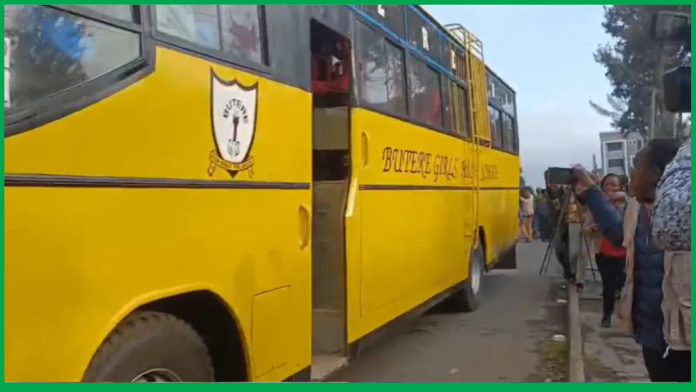Butere Girls Silenced at National Drama Festival Over ‘Echoes of War’ Play
The hopes of Butere Girls High School students to showcase their dramatic talent were dashed on Thursday morning when they were denied a chance to perform their much-anticipated play, Echoes of War, at the National Drama Festivals.
Taking to the stage around 8 a.m., the students were forced to halt their performance after being denied access to a public address system — equipment that has been routinely used throughout the festival. Without sound, their voices were quite literally silenced.
Instead of performing the play, the students sang the National Anthem, many in tears, before solemnly exiting the stage. The disappointment was further compounded by the absence of an audience — a situation the students described as deliberate sabotage. They also revealed that they had not seen the directors of the play in recent weeks and hadn’t received training for over three weeks.
Echoes of War has drawn attention for its bold themes surrounding governance and the Gen Z-led protests that rocked Kenya in 2024. The play was earlier disqualified during the Western Region Drama Festivals under unclear circumstances. However, a High Court ruling overturned the decision, reinstating it into the national lineup and ordering its inclusion in the festival.
Controversy continued to cloud the production on Wednesday when the play’s scriptwriter, former senator Cleophas Malala, was denied entry to the festival venue — Kirobon Girls High School in Nakuru. Malala later claimed that police had blocked his vehicle and threatened him with arrest. That evening, police lobbed teargas canisters to disperse journalists gathered outside the school.
On Thursday, both the press and members of the public were barred from accessing the venue. In an unusual turn of events, even the Kenya Institute of Curriculum Development (KICD) crew and other media partners were asked to pack up their equipment.
“There is no audience, no video, no photography, no live streaming — nothing,” said one crew member involved in covering the event. “Even local productions cannot be recorded. No cameras are approved.”
What was to be a celebration of creativity and youth expression has now turned into a national conversation on censorship, freedom of expression, and the future of artistic spaces in Kenya.


